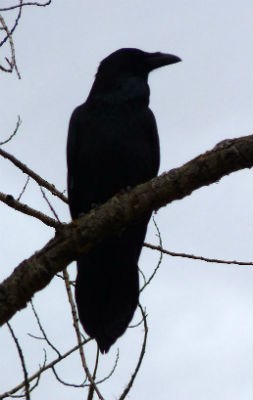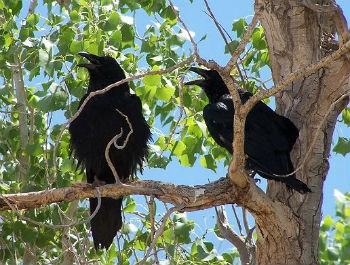
NPS Photo/Marc Neidig This large black bird is easily observed against the red rock sandstone cliffs in Zion National Park, where their acrobatic flight may catch your eye. Ravens are also easily heard, capable of a wide range of vocalizations but best known for a loud, low croak from their massive black beak. Look for ravens in the many habitats throughout the park, from the bottomland areas of the canyon floor to the evergreen forests of the upper Kolob Plateau around Lava Point.
The common raven is a symbol of intelligence and adaptability. Its omnivorous diet gives it an edge to survive harsh climates like the deserts of Zion. The riparian woodlands along the Virgin River offer a wide variety of berries and seeds, such as canyon wild grape (Vitis arizonica), and Western chokecherry (Prunus virginiana melanocarpa). At middle elevations, pinyon pine trees (Pinus edulis) provide pinyon nuts—a great source of fat and protein for many species of wildlife.

NPS photo On your next visit to Zion, look and listen for the raven, one of the icons of the desert Southwest. But make sure to protect your food!
|
Last updated: January 31, 2016
